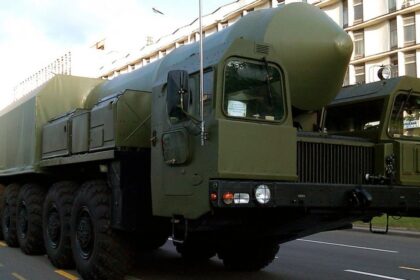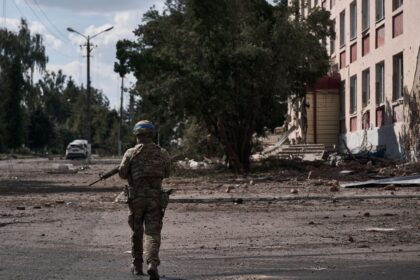**Russia’s Kamaz Cuts Working Week Amid Truck Market Collapse**
Russia’s largest truck manufacturer, Kamaz, has announced that it will reduce its working week to four days starting August 1. This drastic move comes as the company faces a near-60% year-on-year drop in demand for commercial trucks with payloads over 14 tons. The collapse of the domestic heavy vehicle market has led to a significant decline in Kamaz’s net profit, with the company citing a 28-fold decrease in its earnings for 2024.
According to reports, Kamaz shareholders will not receive any dividends this year due to the financial struggles faced by the company. In a statement released on Telegram, Kamaz attributed the downturn to foreign suppliers who allegedly flooded the Russian market with excess inventory, exceeding demand projections. Additionally, the company pointed to Russia’s Central Bank’s tight monetary policy as a contributing factor.
The Central Bank’s decision to keep interest rates high and credit access limited has resulted in over 10,000 nearly new trucks being returned to leasing firms and resold below market value. Kamaz described the situation as “systemic distress” and emphasized that the shortened workweek is a necessary measure to respond to this crisis.
**Tight Monetary Policy Takes its Toll**
Russia’s Central Bank recently cut its key interest rate from 21% to 20%, followed by another reduction to 18%. However, despite these measures, monetary conditions remain tight. Inflation and overheating pressures in the economy are still being felt, although at a slower pace than anticipated.
Kamaz is not alone in adopting a shortened work schedule due to financial difficulties. Just days ago, Avtovaz, another major Russian automaker, announced that it would transition to a four-day week, citing high borrowing costs and increasing competition from foreign imports.
As Russia’s economic situation continues to evolve, businesses like Kamaz are being forced to adapt to survive. The decision to reduce working hours is a testament to the challenges faced by these companies and the broader market. As the situation develops, it will be essential for stakeholders to monitor the impact of these changes on the economy as a whole.
**Commentary**
The collapse of the Russian truck market highlights the country’s ongoing economic struggles. The near-60% year-on-year drop in demand for commercial trucks is a stark reminder of the difficulties faced by businesses operating in this environment.
The fact that Kamaz and Avtovaz are both implementing four-day workweeks due to financial constraints underscores the severity of the situation. These companies are being forced to take drastic measures to remain viable, and it remains to be seen how they will recover from these setbacks.
As Russia’s Central Bank continues to navigate its monetary policy, businesses like Kamaz must adapt to survive in a challenging economic landscape.
**What’s Next?**
The Russian truck market’s collapse serves as a warning sign for the broader economy. As businesses continue to struggle, it is essential to monitor the situation closely and assess the impact on various sectors.
Kamaz’s decision to reduce its working week highlights the need for companies to be proactive in responding to changing economic conditions. Will other businesses follow suit? How will these measures affect employee morale and productivity?
As we move forward, it will be crucial to track the developments in Russia’s economy and explore potential solutions to mitigate the impact on affected industries.
Read More @ kyivindependent.com












